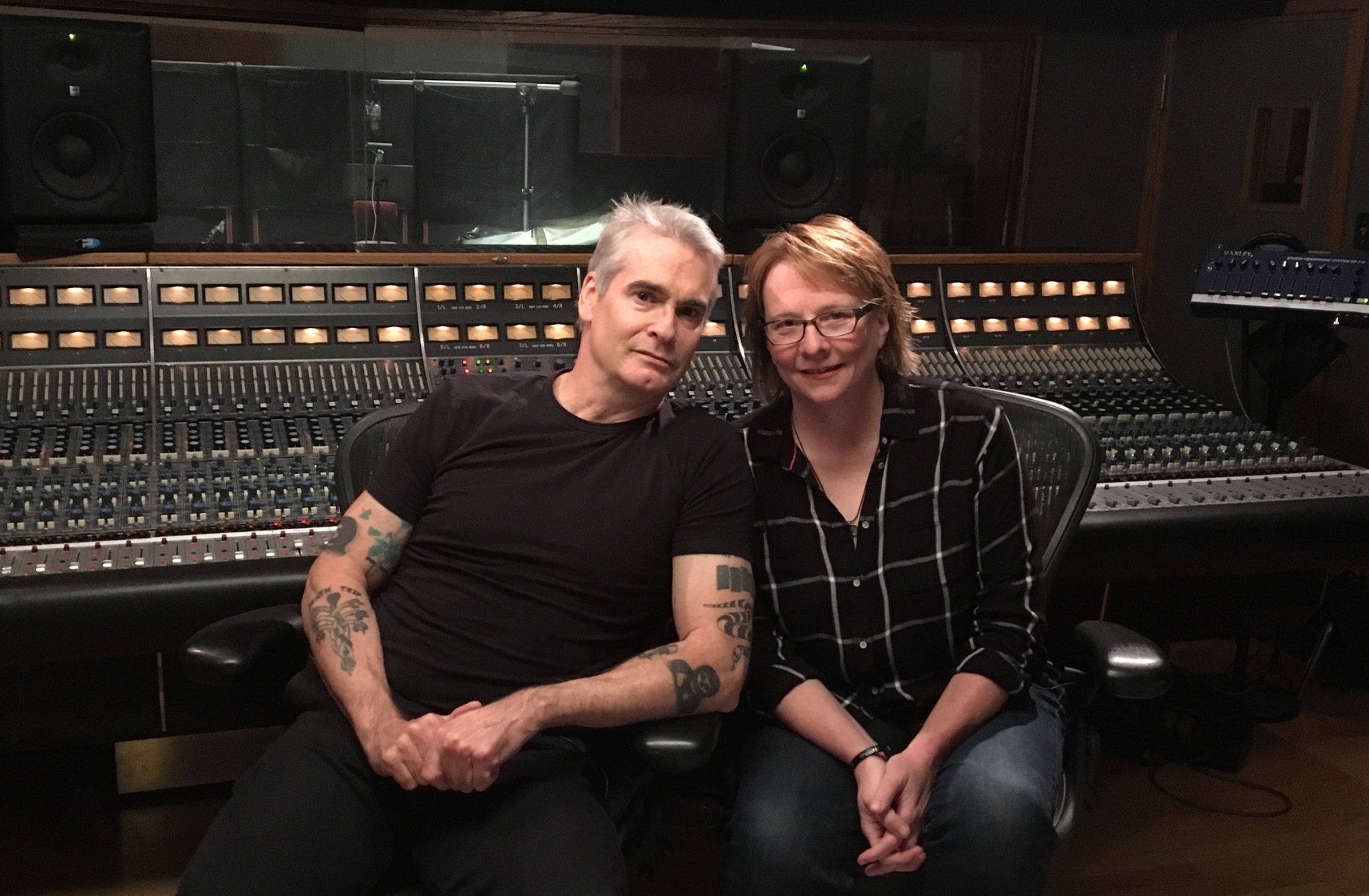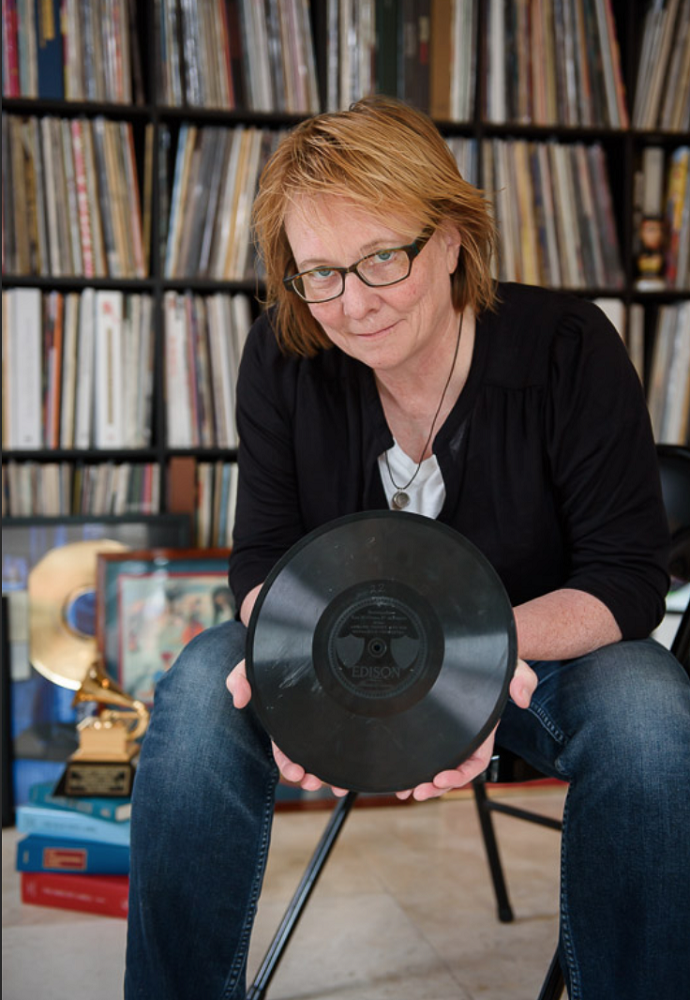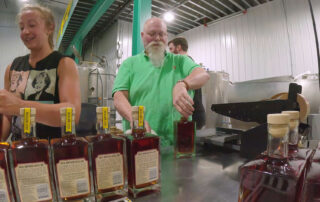Cheryl Pawelski says she born “hardwired” to love music because of the musicians in her family, including her father and grandmother. Growing up in Milwaukee near 68th Street and Oklahoma Avenue, she found an even deeper connection to music – especially through collecting records, purchasing her first two 45s on a trip to Gimbels Department Store with her grandmother.
By the time she was a teenager, the vinyl records began piling up in her room. Pawelski also began to see a city and its many ethnicities embrace the art form enthusiastically as fans and musicians.
As she got older, Pawelski became friends with Milwaukee musicians — like John Kuth, Mrs. Fun and Paul Cebar — and attended shows frequently.
“Until COVID kneecapped everything, there was an excuse to dance and play music and drink beer probably every night of the year in Milwaukee,” Pawelski said. “But for me personally, I was obsessed early on with records, the actual physical things and how they were made.”
She spent a lot of time in record stores – like the nearby Mean Mountain Music.
“You pop up in the door to that place, and you’d hear anything from Louis Jordan to Doris Day. And all these guys hanging around, chain-smoking, shooting the breeze, looking like they walked off the set of ‘Happy Days,’ Pawelski remembered. “And then I come in, rolling up on my bike, looking for like some jump blues 45 or something.”
She started to understand music recording by trading and buying tapes of mostly bootlegged concerts. The tapes would often have studio outtakes by the artist at the end to fill up time.
“You have a favorite artist and all of sudden a song that you really love comes on, but it’s different. It might be missing something. It might have different lyrics,” Pawelski said. “That blew my mind. It’s like the mystery of the universe: how did that happen, you know?”
She attended the University of Wisconsin-Milwaukee before transferring to Marquette University, where she would get her bachelor of arts in journalism with an emphasis in advertising. She produced television shows at Marquette that helped her further understand the nature of recording.
“When you put together a show — whether it’s radio or TV — you need all these component parts. You need to be able to tell a story,” Pawelski said. “If you have to tell it visually, that’s a different thing. If you have to tell it with audio, that’s a different thing. You have to be able to write and communicate.”
Most importantly, it made her see connections to where she wanted to go in her career.
“I felt like, ‘Ah, this is where I feel productive,’” Pawelski said. “There was no pathway to doing what I do. You don’t go to school to be a catalog record producer. It’s a job that kind of doesn’t exist.”
After graduating from college, Pawelski worked at Radio Doctors Record Shop downtown in its one-stop warehouse that distributed records to stores across the state, picking up more knowledge about the music industry.
Going To California
Pawelski ultimately decided she needed to go to one of the centers of the music industry. In 1990, she settled on Los Angeles over New York City and Nashville because she had friends’ floors she could sleep on there.
She started working as a temporary worker at EMI-Capitol Records. “Delusions of grandeur” aside, Pawelski says her main goal was to stay alive.
“You know, temp [work] doesn’t pay much,” Pawelski said laughing.
At the time in Los Angeles, temps could specify they wanted to work in entertainment, which at Capitol meant she became part of the company’s floater pool. This allowed Pawelski to get a taste of different areas at the company and to meet a lot of people.
She ultimately landed a full-time position answering phones for the department responsible for licensing music to television and movies. Her desk was outside the office of producer Pete Welding, who had founded Testament Records and edited “DownBeat” magazine.
One day, Pawelski was talking about jazz musician Sidney Bechet when Welding overheard her. One thing led to another.
“He came out of his office and he said, ‘How do you know who Sidney Bechet is? You’re too young.’ I said, ‘Mr. Welding, anyone can buy records,’” Pawelski said. “He asked if I wanted to work in A&R (Artists and Repertoire). I told him I absolutely did. So I got to learn to make records with Pete. Pete was amazing.”
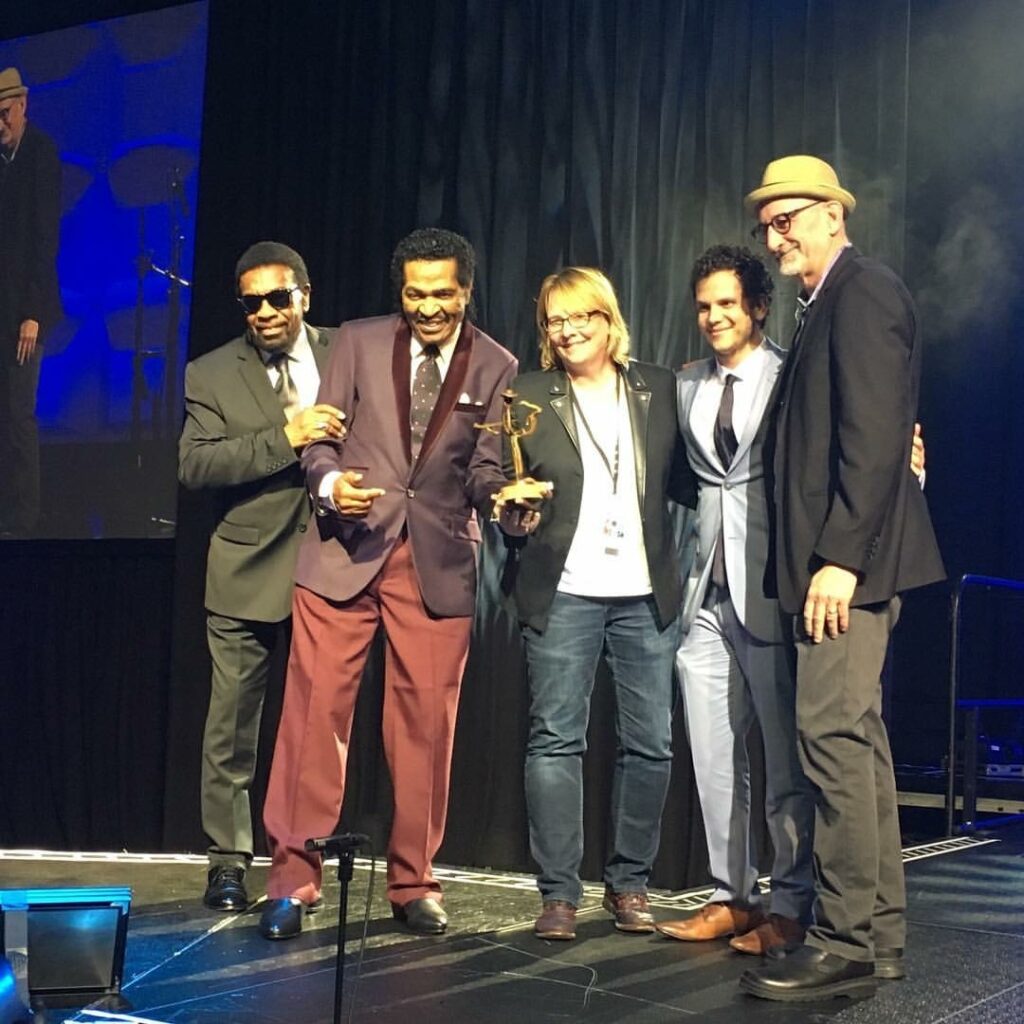
(l-r) William Bell, Bobby Rush, Cheryl Pawelski, Jeff DeLia, and Cary Baker at the Blues Music Awards. (Photo by Pat Rainer)
Pawelski would work her way up to senior director of A&R at Capitol and remain there until 2002 when EMI made massive cuts. Her job was eliminated along with nearly 2,000 worldwide in one day. Admittedly “rudderless” for a bit — but still serving as a consultant — Pawelski would go on to work — and find acclaim — at Concord Records and Rhino Entertainment in the ensuing years.
In 2010, she co-founded Omnivore Recordings, which specializes in reissues, historical releases and vintage recordings. Pawelski started it with the desire to set her own timetable for projects — and find protection from another corporate reorganization.
“Unless we fire ourselves, we are gainfully employed,” Pawelski said.
A Lifetime Of Recordings
The releases Pawelski has produced or worked on at the various labels include albums, compilations and box sets. Artists include Big Star, Little Richard, Miles Davis, Wilco, Aretha Franklin, Townes Van Zandt, the catalog of acclaimed soul label Stax Records and hundreds more.
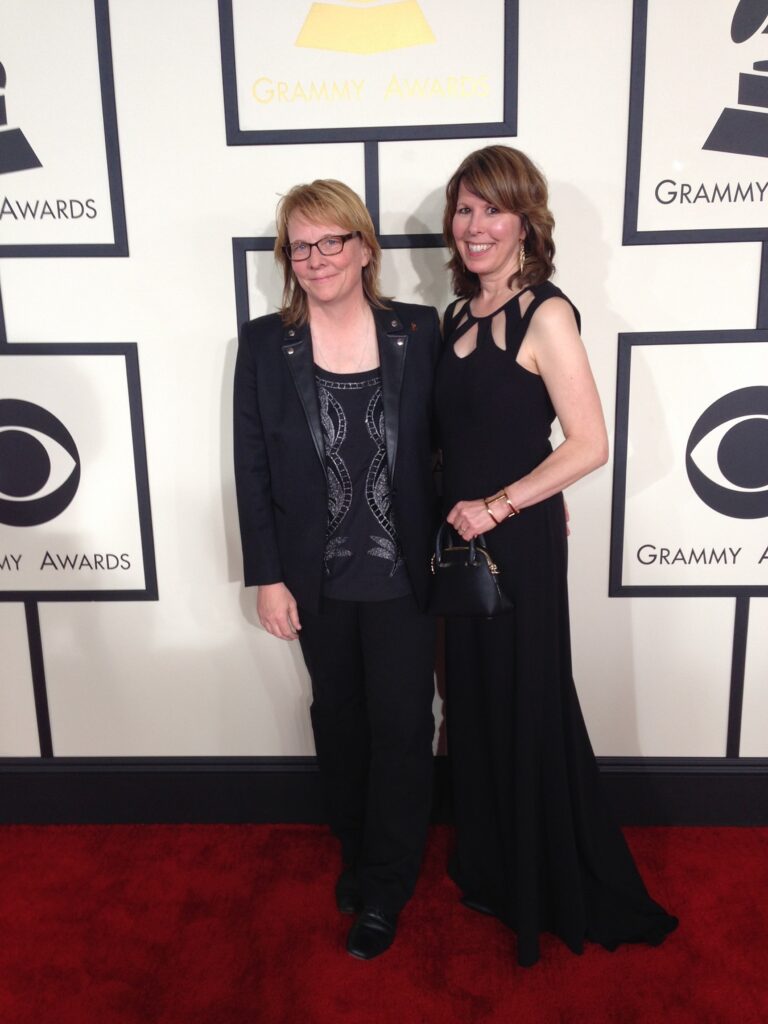
Cheryl Pawelski and her wife, Audrey Bilger, on the Grammy Awards red carpet. (Courtesy of Cheryl Pawelski)
In 2014, she won a Grammy Award for producing Hank Williams’ “The Garden Spot Program, 1950.” She most recently received another nomination, her fifth, for the 2021 Grammy Awards for “It’s Such A Good Feeling: The Best of Mister Rogers.”
Among Pawelski’s favorite releases she produced are the reissued albums and box set by The Band and her reissues of The Beach Boys catalog while still at EMI-Capitol. Another favorite has a Wisconsin connection: two releases by Judy Henske, a folk singer from Chippewa Falls.
Pawelski said she knows she’s lucky to get to do what she does.
“Some of this stuff — like working on Stax material — it’s just like, ‘C’mon. C’mon!’” she said.
There also is the historical significance of preserving the music she helps bring out into the world that appeals to Pawelski.
“That’s the most important thing about my job — not to let us leave some of this on the dust heap of history in the 20th century,” Pawelski said. “Hand it down for next generations so they know about this music.”
In November, Wilco released a deluxe version of their 1999 album, “Summerteeth,” which was produced and compiled by Pawelski and Jeff Tweedy. Pawelski is delighted about giving the band’s fans a gateway to the mysteries of music that has always blown her mind.
“There are songs that I walk around with in my head that no one has heard since they were recorded,” Pawelski said. “There are hits up here! I cannot wait to share those things. I think that’s something among music people, you want to share these things that move you.”
Somewhere there’s a song that needs saving and you just might find Pawelski not far behind.

Music producer Cheryl Pawelski was raised in Milwaukee and is a Grammy Award winner. (Photo by Greg Allen)
==
SONGS: “Caldonia” by Louis Jordan
“Shake, Rattle and Roll” by Joe Turner & His Blues Kings
“Spirit in the Dark (Reprise)” by Aretha Franklin (Live at Filmore West, San Francisco, CA, 3/6/1971)
“I’m Always In Love” by Wilco
“How Am I To Know?” by Miles Davis Quintet
